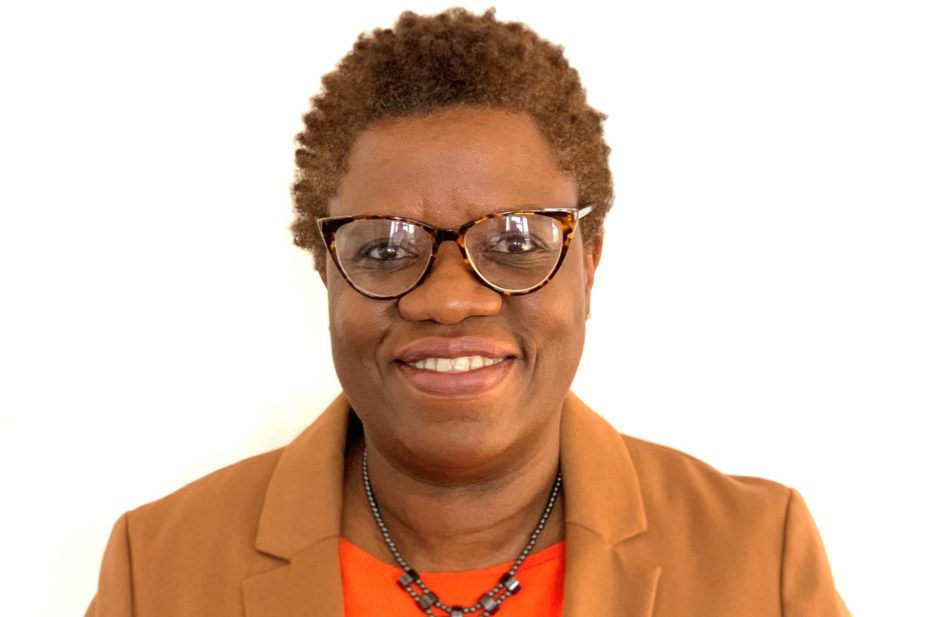
Elsy Gomez Campos is a force to be reckoned with. After writing in The Pharmaceutical Journal in November 2018 that black pharmacists needed a new body to represent their interests, less than two years later she presides over an association which has over 400 members and is being invited into the hallowed halls of pharmacy organisations to feed into their policies on inclusion and diversity.
In a grim way, Gomez Campos could not have timed it better. The killing of George Floyd by a policeman in the USA has sparked Black Lives Matter protests in the UK and much soul-searching over the discrimination black people face in society.
Additionally, the COVID-19 pandemic has thrust the long-standing inequalities that black, Asian and minority ethnic (BAME) groups face onto the national agenda, as mortality rates are strikingly higher in these groups.
In pharmacy, there has also been a sea-change in attitudes towards racial discrimination. A few years ago, there was very little discussion of this issue within the profession, but the Royal Pharmaceutical Society (RPS) published its first diversity and inclusion strategy in June 2020, and joined with the UK Black Pharmacists Association (UKBPA) to survey pharmacists on whether they were receiving risk assessments for COVID-19.
The General Pharmaceutical Council (GPhC) is looking at blinding fitness-to-practise investigations to minimise racial bias, and is likely to soon require all pharmacy training providers to conduct annual reviews of student performance and admissions, including by ethnicity.
And the Pharmacy Schools Council recently released a statement which contained a number of pledges on how they would better support BAME pharmacists, including those in preregistration training, where black pharmacists face a long standing disparity in exam pass rates, compared with their white counterparts.
In order to assess how these changes will affect black pharmacists, and what needs to be done next, The Pharmaceutical Journal spoke with Gomez Campos, after a hard day working as a hospital and care home pharmacist in Essex.
The COVID pandemic and Black Lives Matter movement have put the inequalities and discrimination that minority ethnic groups face on the national agenda. Have you seen any positive change in pharmacy?
It is very positive to see that the RPS has published a strategy on inclusion, diversity and equality, and I believe the GPhC is also working on a strategy in the same area. That is a positive step towards achieving a profession where we won’t have to be talking about this in the future, because it will just be embedded in everything that we do.
Some of us have spent years and our personal money to prove ourselves, and it’s never enough
But are strategies enough?
Culture eats strategy for breakfast. I’d like to see specifics on how we are going to achieve those goals. We are used to saying: “Yes, we want to be more inclusive.” But, we keep seeing the same faces. Why is it that we do not have people that look like me, or sound like me, leading the RPS or the GPhC? Some of us have spent years and our personal money to prove ourselves, and it’s never enough. We are tired of seeing strategies, what we want to see is how we are going to achieve it.
How could it be made easier for black pharmacists, in particular, to enter leadership positions?
For a long time, the excuse was that there are no black people applying. So, whenever there is a job going at a national level, we encourage people to apply for it. The problem is that they are unable to break that ceiling. We have people with a huge amount of experience and who are willing to learn, but they apply and they don’t get it. It takes a lot of courage and you just keep seeing the same of the same. And you just get tired and frustrated.
And in terms of UK Black Pharmacists Association members, is there any commonality in terms of their experiences of discrimination or prejudice within pharmacy?
For instance, with COVID-19 risk assessments, black pharmacists feel they are at risk and their employers are not listening. Today, I was in tears at lunchtime as I had a fourth-year pharmacy student who has lost two members of his immediate family during this exam period. He requested support and feedback about an exam, but only got a very general response. The concerns of our members are not taken seriously. Some black pharmacists don’t have any relatives in this country. Some of us come from abroad to either study or work here. We don’t have the large network that will support us. Our needs are different. I’m not trying to say that we are special, but we need to listen to each other.
We recently published data that showed a 15-percentage-point awarding gap for black MPharm students versus their white counterparts. BAME students can feel very isolated when they start university – how much of a factor is that?
I didn’t do my university studies in this country and I have such fond memories of them. Then I had to come here and do my conversion course and, for the first time, I noticed the colour of my skin. It was obvious the treatment that some of us were given in comparison to a white pharmacist from Africa — that has an effect on you. You start doubting yourself. You are scared to put your hands up in lessons, you are scared to say something because you are not going to get the same reassurance from the tutor and you start withdrawing yourself. We need to start educating our academics how to be more inclusive. Academics are leaders and have the potential to lift you for the rest of your career or mark you negatively.
We have to overcome so many barriers that it is tiring; so many excuses to justify what is unjustifiable
Some pharmacy schools say they have programmes to support BAME students, but that there may be other factors involved in terms of socioeconomic status and what grades the student came in with. Is that a valid argument?
Everyone will come from different backgrounds and have different problems at home. Students may come from abroad, or they are supporting family members. They may be the first one to go to university in their home. You need to think about the potential that these people have. I studied with mature students who had children at the time, and they achieved as much as people that were worry-free. We need to give everyone support and start concentrating less on the “What if?”. Some of these people work harder, because they know the problems that they are facing. But we have to overcome so many barriers that it is tiring; so many excuses to justify what is unjustifiable.
Do you welcome the new support pharmacy schools are saying they will provide for preregistration trainees?
It was overdue. This is the first step. And so now, what we need to see is them encouraging the students to talk to them about their experiences and how they can better support them. They have to be proactive — for example, with listening assemblies or one-to-one counselling. And we need to see consistency and the conversation taking place on a regular basis because discrimination, isolation and inequality is happening daily. This is going to be very, very uncomfortable to start with for many people, but if we continue, we can start thinking about examples of unconscious bias and how that is affecting others. We are very good at talking. We are very good at writing policies, but what I want is outcomes. We don’t want perfection, we just want organisations that become better in what they are doing.
It’s all very well releasing a strategy, but if you don’t actually talk to the people who have these experiences, you won’t learn anything. Are you being involved in these strategies?
The RPS very much want us working alongside them, advising them, and they have a strategy now. They want a roadmap on how to achieve what they have set out to do and we have been approached to work on this in collaboration with them. We approached the GPhC about the educational standards for pharmacy and I am part of that work now. Only one head of a pharmacy school has contacted me about how they could do better, and we haven’t been approached by any organisation in terms of how to improve the students’ experience. This worries me. When they write all of these policies, even if they’re trying to do their best, they do not have the knowledge and experience that we bring to the table. They need to bring us in from the beginning to work on it.
It is inhumane what is happening in our profession to people who have dedicated their life to become a pharmacist
What would you say to someone who claims that racism in pharmacy does not exist?
I have seen comments on social media like this. They have not seen it because they have not asked, or been affected. We do have a serious problem in pharmacy that keeps me awake at night, because I do not know how we are going to change people’s mindset. It is inhumane what is happening in our profession; to have people who have dedicated their life to become a pharmacist and work hard and then be isolated, physically attacked and have their reputations destroyed. In 2020, to have a conference where you do not have black people speaking, where you have boards that do not have a black person? I am not supporting tokenism; I don’t want to be put in there just because they want a black face. I want people to deserve to be there. I want equality. If someone comes to me and asks if they will face discrimination in pharmacy, I cannot tell them “No”. You are going to see it in the schools, in your place of work, when you are trying to advance in your career. We do not talk about racial discrimination in pharmacy, we do not acknowledge it and when someone does try to talk about it, we try to isolate them. Someone told me in the group: “They will bury you”. That is what pharmacy does. What we need is more people with courage from all races, because a huge number of the 400 pharmacists I represent have had bad experiences that should not have happened in the first place.


